Brief interviews on the relationship between environmental justice and issues like the Keystone XL Pipeline, a U.S. based smelter in Peru (a protest of which is pictured above), the Chad-Cameroon Pipeline, fracking, and destruction along the coast of Louisiana.
By Rebecca Barnes-Davies, Associate for Environmental Ministries (PCUSA), with Leslie Woods, Valéry Nodem, John Preston, Kristina Peterson and Richard Krajeski, and Sue Smith. View and Print as PDF.
View and Print as PDF.
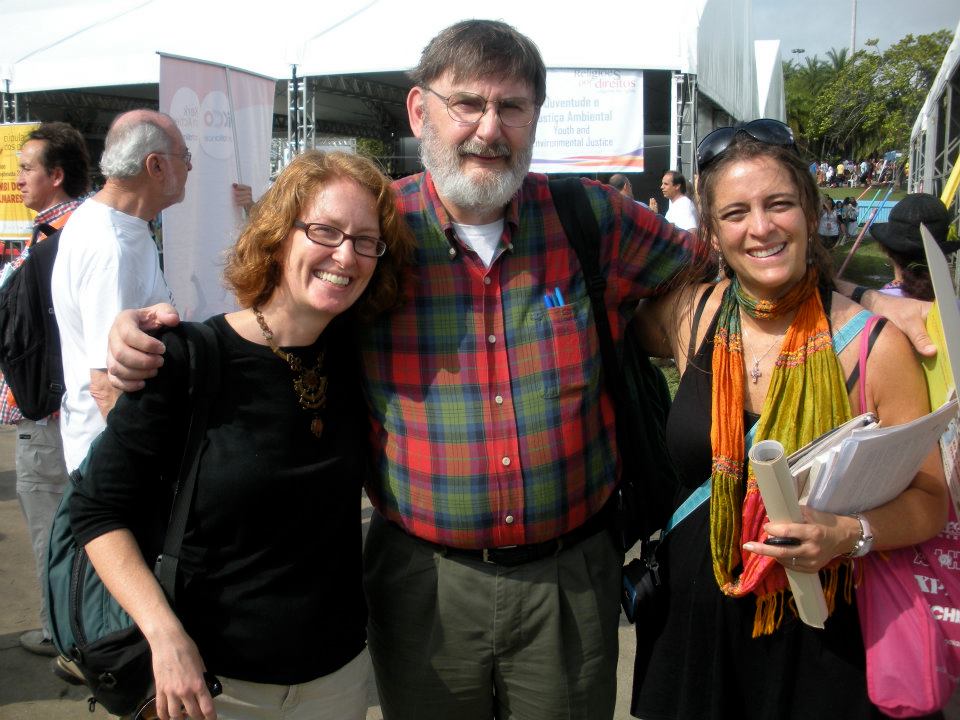
Introduction
In both theology and the physical world, we are related to other living beings. We live our lives connected to other people, creatures, and systems. Whether we talk about being the Body of Christ, or about the world as God’s body,[i] or about ecosystems, we affect and are affected by those around us.
Environmental justice, or eco-justice, can be understood as the well-being of all humankind on a thriving earth (Presbyterian campus minister Bill Gibson wrote this in the “Keeping and Healing the Creation” Presbyterian Eco-Justice Task Force paper in 1989). Thus, eco-justice broadly attends to economic, racial, and social justice, as well as issues and actions of ecological wholeness.
Eco-justice advocates have concern for other people, for other species, and for the entire natural world. We do not pit workers against owls, children’s health against natural resource development, or indigenous people’s hunting needs against park systems. We look to larger systems, we ask broader questions, and we seek more holistic, thorough solutions for all people and all creation.
Think of this article as a mosaic: a collection of glimpses of some of the questions and concerns voiced in the global conversation about environmental justice. For instance, where do we see racial, economic, social, gender, and ecological justice concerns intersecting? How do our lives and choices affect others in this matrix of connection? Each section below asks what relevance questions like these have to particular issues or contexts such as: the tar sands oil pipeline; the Chad-Cameroon oil pipeline; a U.S.-based smelter in Peru; the practice of fracking in the United States; and what we encounter of environmental justice in the bayou and in our personal choices. At the end of each section, I connect the specific concerns of that issue with larger, widespread environmental justice concerns.

Why does our demand for cheap energy seem to lead inevitably to the destruction of the earth and disregard for certain human populations? A Look at the Tar Sands.
By Leslie Woods, Associate for Domestic Poverty and Environmental Concerns, Office of Public Witness (PCUSA)
Because of our seemingly insatiable appetite for cheap energy in the form of oil and gas, we have turned to extracting crude oil from tar sands, even though it is difficult to transform the sands into the crude oil needed to make the products we so regularly burn. Seventy percent of the world’s tar sands exist in Canada, where this resource is currently being developed. In order to access tar sands, the land, with its forests, is cleared. Next, large amounts of water are used to process the tar sands, converting them to petroleum. Studies show that, on average, two tons of tar sands are required to produce one barrel of petroleum. Most people have heard of tar sands in the context of the Keystone Pipeline XL, which is proposed to carry crude oil from Canadian tar sands to the refineries in the southern United States.
The impacts of tar sands extraction on God’s creation, including people, are devastating. Though the Canadian tar sands are located in a remote part of the country, initial studies have indicated a disproportionate impact on First Nations that live a subsistence lifestyle. The concentration of toxins such as arsenic and mercury has increased, and will continue to do so, contaminating both food and water sources.
On a global level, the development of tar sands is producing an ever-increasing amount of greenhouse gases, using millions of gallons of fresh water, and destroying habitat that is necessary to ensure long-term biodiversity. These then contribute to global climate change, decreasing our potable water supply, and threatening the very systems that God has created here on earth.
Throughout history and around the globe, disadvantaged human populations bear the worst environmental burdens and the least environmental protections. In the U.S., Indigenous, African-American, and immigrant communities have the least access to fresh food and healthy air while bearing the disproportionate impact of living near natural resources in the midst of exploitation, toxic waste sites, or widespread pesticide applications in agricultural fields. Women and children also bear disproportionate impacts from environmental degradation, as do economically impoverished areas. Internationally, too, whether we are talking about potable water, climate change, deforestation, or food production, it is communities already wrestling with poverty, hunger, and lack of access to natural resources and political power, that bear the burden for the appetites of the wealthy and powerful.
Learn more about the Keystone XL Pipeline.
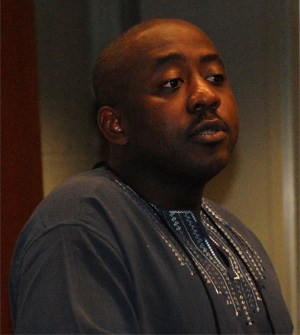
Global glimpses of environmental injustice
By Valéry Nodem, Associate for International Hunger Concerns, Coordinator of the Joining Hands Initiative, Presbyterian Hunger Program (PCUSA)
Chad-Cameroon pipeline project in Cameroon
Ten years ago, Exxon Mobil, Chevron, and the Malaysian company Petronas built, with the support of the World Bank and other financial institutions, a thousand mile pipeline between Chad and Cameroon in Central Africa. For Chad, being a landlocked country without access to the sea, the pipeline sounded like the best way to transport (through Cameroon) the 225,000 barrels a day of oil production to the Atlantic Ocean, for international markets. This project was the most important private investment ever done is Sub Saharan Africa, with a budget of 4.5 billion dollars.
More than 150 villages in both countries were traversed by the pipeline. Local and poor communities had never seen such a big project. They were not properly informed about the impacts the project would have in their lives, nor were they prepared to live with those impacts. The construction of the pipeline resulted in the destruction of forest and the loss of biodiversity. Many water sources and sacred sites were destroyed, and hundreds of communities lost either communal or personal land that they were using to grow food for their families and local markets.
Ten years after the construction of the pipeline, hundreds of communities in Chad and Cameroon are still claiming compensation for personal or communal property or livelihoods loss while the companies involved have failed to respond to these complaints.
La Oroya campaign in Peru
In 1997, RENCO (a U.S. company owned by Ira Rennert) acquired, through its subsidiary Doe Run, a smelter company in La Oroya, Peru, a city of more than 35,000 people. The smelter was to refine and process heavy minerals like gold and copper. Before and after that acquisition, there was minimal investment in modernization or clean operations. When Doe Run acquired the plant, a condition of the sale was to complete an environmental remediation plan called PAMA. However, Doe Run delayed the remediation plan and requested multiple extensions.
As a result of years of pollution, the surrounding areas of the smelter are denuded, the river toxic, and the health of area inhabitants suffering. Ninety-nine percent of children living in and around La Oroya have blood lead levels that exceed acceptable limits, according to studies carried out by the Director General of Environmental Health in Peru in 1999. Lead poisoning is known to be particularly harmful to the mental development of children. Residents have been found to have alarmingly high concentrations of lead in their blood and in the drinking water, and many have bronchial troubles. In 2007 La Oroya was classified as one of the ten most polluted places in the world.
Citizens of La Oroya filed a lawsuit against RENCO for an environmental cleanup. RENCO then initiated an international arbitration against Peru before an international investor-state tribunal, claiming violations of the U.S.-Peru Free Trade Agreement. RENCO asked Peru to pay $800 million in damages for “fair and equitable treatment” (because Peru had high standards for the quality of remediation), for discriminatory treatment (because the Peruvian company that used to own the smelter has not completed its PAMA), and for compensation (for indirect expropriation because the plant cannot operate in bankruptcy). Just last year, here in the U.S., RENCO’s subsidiary Doe Run Investment Holdings, Inc. was found liable for $358.5 million to the families that were injured by pollution from its lead smelting plant in Herculaneum, MO. The struggle continues.
As in these two cases, corporations looking to profit from the exploitation of both land and people often use legal loopholes, rely on the lack of political power and legal knowledge of local communities, and lobby politicians. Concern for the health of the land or for the citizens of the area is not a priority for these for-profit corporations. Environmental justice seeks to cut through misinformation, abuse, and unequal power in order to communicate that the health of a local human community is tied to the health of its surrounding ecosystem and both are vital.
Rather than accepting an argument that environmental destruction can help raise the economy of a local community (because of the jobs a project might provide), communities and individuals are questioning what the payback really ends up being.
Learn more about the Joining Hands Initiative.

A case study of the dilemma of economic and earth-keeping urges in the predicament of hydraulic fracturing (“fracking”)
By Rev. John R. Preston, M. Div., M.A. in Marriage and Family Therapy, and author of Wrestling Until the Dawn: The Fight for Biblical Justice in a Postmodern World
Imagine with me this scene: There is a man standing here, considering his future. For over thirty years he has re-invested what he has earned in his farm, with ever-expensive agricultural equipment. There were the tractors, silos, and all the rest. He saw himself as a steward of the land. But, in putting everything back into his farm, there was not enough left over to maintain a regular retirement plan.
Now the opportunity for the payoff for his hard work has come! Energy companies loaded with cash and looking for land to lease (where there are shale formations deep beneath) are coming into his home region—thanks to the latest American engineering feat known as hydrofracking. By leasing, he could retire in 10 years.
His neighbor friend is against leasing. This friend has a relative in a town where many leases were signed, and where the character of the rural region had changed. Patches of woodlands were razed to make room for drilling pads, and then for pipelines. Truck traffic was constant, breaking down roads and churning up dust. Clean water was said to be a problem, what with the spills and the rupture of the integrity of the wells releasing methane into ponds, land, and atmosphere. Fracking water returned to the surface after breaking up the shale below and releasing the gases. It returned contaminated with unknown chemicals and sometimes with radioactivity.
But the farmer thinks: “Maybe they won’t have to blow up more mountain tops for coal if they use shale gas for generating electricity.” Plus, he has worked hard. A lease would simply be what he is owed for a lifetime of stewardship.
But stewardship, he knows, is a broad concept. He knows that carbon based fuels are warming the earth. What if shale gas could prevent the needed and timely conversion to renewable fuels? As a farmer with a conscience it makes him ask: If I lease, will I be adding to global warming? Am I doing the right thing? Will I lose some good friends over a lease? Will my lease change our way of life, our town character, our water and soil? It is a dilemma.
There are real conflicts in the systems we’ve created. We are called to evaluate all angles. Economic wellbeing and environmental health often seem opposed, at least in the debates as they typically run. Individuals and whole communities often feel paralyzed between the two, forced to choose the lesser of evils, rather than truly pursuing health and wholeness for all people and for the earth. How can we take a deeper look?
Say no to fracking.
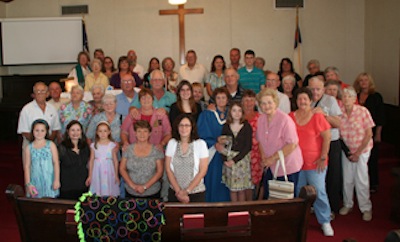
Sacrificial zones: people and places
By Kristina J. Peterson, Pastor, Bayou Blue Presbyterian Church and Senior Research UNO-CHART, and Richard L. Krajeski, Moderator, Bayou Blue Presbyterian Church, Mission Com. PSL.
The destruction occurring along the coast of Louisiana is hurting everyone. Like many regions of this country, the damage that is occurring to communities and the environment is irreversible and it erodes the spiritual and physical web of life. For the Louisiana delta, land is being lost at such a fast pace that environmental dislocation is a reality. This damage is linked to institutional environmental and economic racism, corporate exploitation, and lack of national awareness.
The delta of coastal Louisiana is the drainage system for over two-thirds of the United States lower forty-eight states’ river systems. The wetlands and marshes of the delta have ecological services that act as kidneys, or a filter system, for all that runs through its water ways (such as pesticides, fertilizers, toxins from mountain top removal, fracking, uranium mining, tar sands industrial waste, and so on). These toxins poison animals and humans, and the fertilizers create a “dead zone” in the Gulf.
We also have 64,000 miles of oil and gas pipelines meandering under and above the marshes and open waterways. We have thousands of wells (oil and gas) including 32,000 abandoned wells. Oil and gas sent to the rest of the country to power lights and cars and to deliver food are carved from this precious eco-system. There are miles upon miles of petro-chemical plants (47% of U.S. crude oil refineries) lining the Mississippi River. We are cancer alley.
Meanwhile, this delta is one of the biggest wetland systems in the world. Sadly it is also one of the fastest vanishing wetlands in the world, having lost a landmass equal in size to the state of Delaware in just 50 years. These disappearing wetlands and marshes are estuaries (the life source and nourishment for the fisheries of the Gulf and the Atlantic), welcoming and nourishing points for migratory birds, and also carbon sinks (affecting climate change).
To address the loss of the deltaic wetlands is to address the root causes: our energy dependence on non-renewables and the extraction of these energy sources from regions out of sight from the rich. These “sacrificial zones” are the regions where populations have low political clout and usually high levels of social injustices, such as the lack of access to resources, including education and health services. These regions usually suffer from outside prejudice, exclusion, and exploitation from corporations. (This exploitation is felt daily in cancer alley where every family in my congregation has some type of cancer, asthma, or other environmentally induced ailment.)
It may be easier on our collective conscientiousness to rebuild homes hit by hurricanes than to fix the marshes (damaged by oil pipeline canals) and change our ‘at home’ and corporate lifestyles. It may be easier and praiseworthy to have a mission trip to Appalachia than to challenge the powers and principalities that have placed the burden of poverty on people so others can enjoy cheap coal. But “easier” was never the task of the Gospel.
Our challenge, then, is to be in solidarity with the ancient words: the earth is the Lord’s and the fullness thereof and God created it Tov (good).
How do we engage the hard work, the honest lament, and the fair assessment of what is possible, both individually and corporately, in response to these realities? Where in our own local communities are there issues of environmental racism, gender justice, or economic privilege? How can we link those struggles with struggles in other parts of the country and around the world? Where can we take a stand and make change?
Literature regarding any part of this commentary will be supplied by emailing: [email protected].
Learn more from the Center for Hazards Assessment, Response, and Technology.
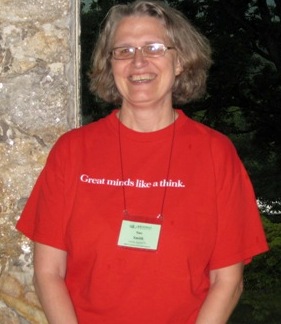
Recognizing the interconnected issues and responding with action
By Sue Smith, Treasurer, Presbyterians for Earth Care, and seminary student at New Brunswick Theological Seminary
Every time I cook, I am probably the beneficiary of fracking. Every time I turn on a light switch, I am probably the beneficiary of mountaintop removal. When I fill up my gas tank, I have probably contributed to oil spillage somewhere, or will benefit from the XL pipeline if it is built. I cannot live my life in this country without having an impact on the justice issues of our time.
In August, I participated in the Together for Justice Gathering of the Joining Hands Initiative of the Presbyterian Hunger Program. There it became quite clear to me that my investments and the products I buy can have a big impact on the justice issues faced by our brothers and sisters overseas (and even here in the U.S.). Everyday they are confronted by the consequences of the profit motives of large multinational corporations: water privatization, land grabs, unsustainable farming methods, and the environmental degradation impact of the extractive industries. These are big societal issues, and in many ways need macro solutions.
Is there a way for individuals to make any impact? Here are some ideas: invest in socially responsible companies; find out which companies are doing the greatest harm, and weigh the personal benefits of owning the stock versus the social damage the company causes; as an owner, write letters to management about their actions; vote for shareholder resolutions that commit corporations to solving issues of justice; find out about the companies that are doing business in a socially irresponsible way, and do not support their bottom line by buying their products or using their services. “For where your treasure is, there your heart will be also.” (Matthew 6:21, NRSV)
Read more articles like this one in the Nov 2012–Jan 2013 issue, “Hope for Eco-Activists: Discovering an Environmental Faith“
Additional Resources:
- Enough for Everyone campaign
- Mission Responsibility through Investment
- Interfaith Center on Corporate Responsibility
- Ceres: Mobilizing Business Leadership for a Sustainable World
[i] For more on this concept (of the world as God’s body), see works by Sallie McFague, an American feminist Christian theologian who is particularly well known for her emphasis on the metaphorical nature of human communication about God—and the application of that metaphorical approach to environmental issues.

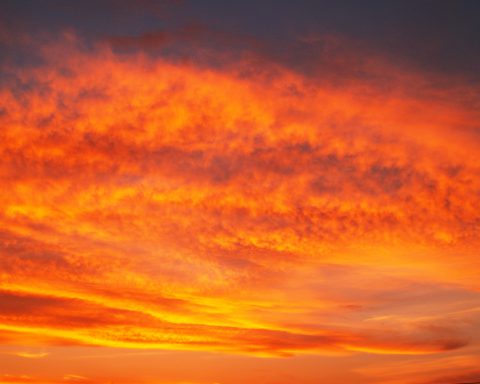
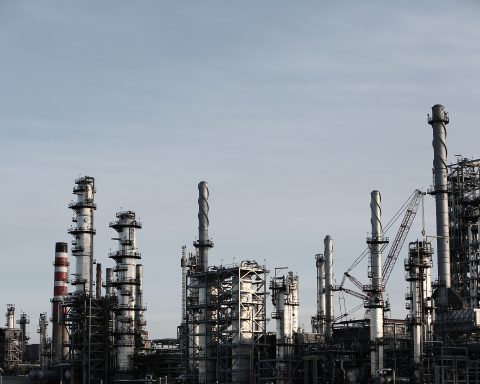
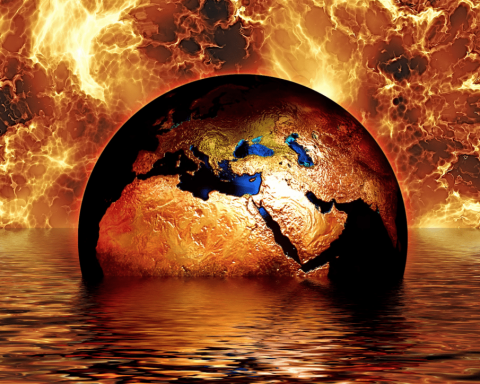

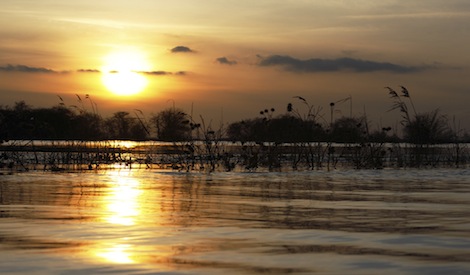
Unbound Social